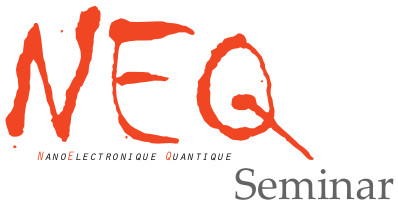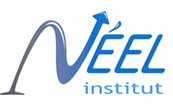- Accueil
- Institut Néel
- Équipes de recherche
- Pôles & Services techniques
- Travailler à l’institut
- Partenariats
- Actualités
- Agenda
- Annuaire

Résumé : Quantum computers have the potential to solve computational problems that are beyond the reach of classical computers. Superconducting circuits with nonlinear Josephson junctions are a leading platform for quantum computing, where qubits are encoded in microwave photons. However, microwave quantum signals are highly susceptible to thermal noise, necessitating cryogenic environments to maintain coherence. This challenge hinders the transmission of quantum signals over microwave cables at room temperature. A promising solution for long-range quantum communication without loss of coherence is to convert the microwave quantum state into optical photons, enabling the interconnection of remote superconducting processors. At IBM Research Europe – Zurich, we explore electro-optomechanical and electro-optical integrated photonic circuits for microwave-optical quantum transduction. Our investigation focuses on a triply resonant transducer composed of low-loss barium titanate (BaTiO3) waveguides integrated with a niobium superconducting microwave resonator. BaTiO3 has the potential to surpass currently used thin film platforms based on aluminum nitride or lithium niobate in terms of efficiency and noise reduction, thanks to its strong Pockels coefficient. The device demonstrates bidirectional microwave-optical transduction with total off-chip efficiencies of 1×10−6 using pulsed pumping. The used device concept allows in-situ poling of the ferroelectric material without introducing excess microwave loss. Additionally, we investigate optically induced heating, revealing fast thermalization and quasiparticle resilience of the microwave resonator
